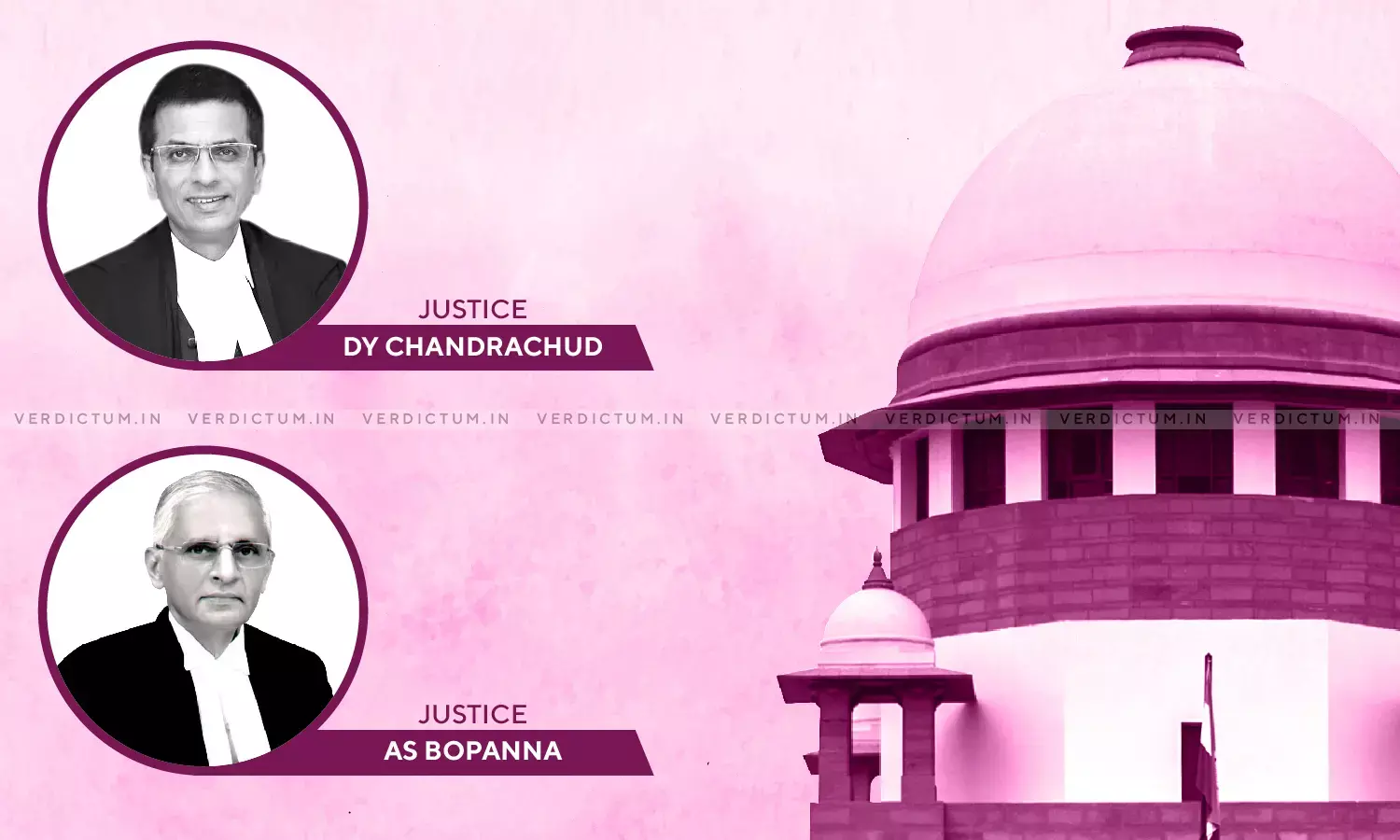Compassionate Appointment Not A Right, Pension Received By Family Can Be Taken Into Account - Supreme Court

A two-judge Bench of Justice Dr. DY Chandrachud and Justice AS Bopanna has held that compassionate appointment is not a vested right, but is to enable the family to tide over a financial crisis that may result from the death of the employee. The Court held that if the appointment scheme requires that the family pension be taken into account in evaluating the merits of an application, it has to be followed.
Additional Solicitor General Ms. Madhavi Diwan appeared for the Appellant-Union of India, Advocate on Record Mr. Rabin Majumder appeared for the Respondent before the Court.
An appeal was preferred by the Union of India assailing the judgment of Madras High Court which had affirmed the judgment of the Central Administrative Tribunal (CAT) directing the Appellants to reconsider the claim of the Respondent for appointment on compassionate grounds for a post corresponding to her qualifications against vacancies for 2014-15.
In this case, the Respondent's husband who was serving as a Sargent in the Indian Air Force died due to cancer leaving behind her wife-Respondent and two minor children.
The Respondent had filed applications twice claiming employment on compassionate ground, however, both were rejected on the ground that the Respondent had secured merit points which did not enable her to obtain the compassionate appointment.
Respondent-Wife was in the receipt of a family pension of Rs. 8265/- per month. The case of the Respondent for the compassionate appointment was evaluated and merit points were assigned under various heads. However, she contended that the family pension at the above rate was payable from 7th January 2008 to 6th January 2008 after which the amount of pension would reduce to Rs. 4959/- per month.
The Tribunal had held that denial of compassionate appointment on the ground that Respondent was drawing a monthly pension of Rs. 8265/- was not justifiable as pension is paid for the service rendered by the employee. On this basis, the letter of rejection was quashed and Appellants were directed to reconsider the case.
The Appellant contended before the Supreme Court that the fact of pensionary payments would be reduced after a period of 10 years would not be ground to reassign the merit points in accordance with the Scheme.
While the Respondent argued that the merit points assigned to her were incorrectly computed. Further, AOR Mr. Majumder urged that having due regard to the financial condition of the Respondent, the Court may not interfere with the impugned judgment of the Tribunal on humanitarian grounds.
The Apex Court noted that the conclusion of the Tribunal that the pension is paid for past service rendered by the employee and hence, denial of compassionate appointment on that basis was not justifiable was fallacious.
Further, the Bench observed, "Undoubtedly, pension is not an act of bounty, but is towards the service which has been rendered by an employee. However, in evaluating a claim for compassionate appointment, it is open to the authorities to evaluate the financial position of the family upon the death while in service. Compassionate appointment is not a vested right. It is provided in order to enable a family to tide over a financial crisis caused by the death of its wage-earner while in service. If the scheme requires that the family pension must be taken into account in evaluating the merits an application, it has to be followed."
"If the policy of the government envisages that the family pension would be paid for ten years after which it would have to be modified, it cannot be said that by taking into account the present pensionary payment, the authorities have considered an extraneous circumstance. The same criterion is applied even handedly to all applicants seeking compassionate appointment," the Court opined.
The Court also added that the reasoning of the High Court that the payment made to the Respondent was ad hoc in nature and was wrongly considered by the authorities while awarding merit points was equally erroneous as that of the Tribunal.
"The grant of compassionate appointment would not be in accordance with the basic purpose and object of such a scheme," the Court held.
Accordingly, the Court allowed the appeal and set aside the impugned judgment of the High Court and dismissed the OA filed before CAT.

